‘Rapid food price rises can spill over into civil disorder and even revolutions’
Your digest of analysis from the British and international press

- 1. Never underestimate inflation’s potential to cause violent disruption
- 2. How dangerous are the partygate photos for Boris Johnson?
- 3. Putin’s next move? A truce to split the West
- 4. I feel for Depp and Heard – I know what it’s like to have the public decide you’re guilty
- 5. A minor strongman, some conservative populists and Tucker Carlson went to a conference
A free daily email with the biggest news stories of the day – and the best features from TheWeek.com
You are now subscribed
Your newsletter sign-up was successful
1. Never underestimate inflation’s potential to cause violent disruption
Andrew Lilico in The Telegraph
On the cost-of-living crisis
Amid warnings of “apocalyptic” food price rises, “we have so far regarded these issues mainly in terms of their impacts on overall inflation”, says Andrew Lilico in The Telegraph. What we have discussed much less “is how rapid food price rises can spill over into civil disorder and even revolutions”, he adds, citing the Arab Spring of a decade ago as a direct correlation of global food-price inflation. “Similar patterns pepper history,” he argues, claiming that for all the many other issues late Tsarist Russia faced, “it was food price inflation that triggered its end”. Governments that cannot guarantee a supply of food for their citizens “risk being replaced – violently or otherwise”, he writes. “Revolutions may be less likely in the West than elsewhere, but even then the political backlash at the ballot box could be severe.”
The Week
Escape your echo chamber. Get the facts behind the news, plus analysis from multiple perspectives.

Sign up for The Week's Free Newsletters
From our morning news briefing to a weekly Good News Newsletter, get the best of The Week delivered directly to your inbox.
From our morning news briefing to a weekly Good News Newsletter, get the best of The Week delivered directly to your inbox.
2. How dangerous are the partygate photos for Boris Johnson?
Freddie Hayward in The New Statesman
On ‘Fizzgate’
Photos of the prime minister raising a glass at a Downing Street party during the second lockdown “will not immediately threaten [Boris] Johnson’s position”, writes Freddie Hayward in the New Statesman. They will, however, “keep the partygate fire burning and continue to erode voters’ trust in Johnson”. With the Commons Privileges Committee investigating whether he misled Parliament, the question that “poses a more perilous prospect” for Johnson is “did he really think the guidance was being followed?” Johnson will of course claim that he replied in good faith and by doing so did not intentionally mislead the House, “but that line of argument is becoming increasingly untenable”. More damning could be the revelation he suggested to Sue Gray she should not publish her report, which “would constitute an interference in the investigation and could prove more problematic for the Prime Minister than the photos”, writes Hayward. “It’s important to remember that Johnson’s popularity has already taken a severe hit over partygate. The question now is how bad will it get.”
A free daily email with the biggest news stories of the day – and the best features from TheWeek.com
3. Putin’s next move? A truce to split the West
William Hague in The Times
On a big choice
“Imagine you are Vladimir Putin deciding what to do next,” writes William Hague in The Times. Having realised that you were badly informed back in February, and then forced to scale back your main military objective to the conquest of Donbas, you know you have a big choice to make, he says. “One is to mobilise for a much bigger, longer war”, but that would require the conscription of huge numbers of young Russians or the use of tactical nuclear weapons. The other option “suits your playbook very well” and includes magnanimously offering a ceasefire to the Ukrainians before beginning peace talks on a full agreement. Hague argues that for this to work Putin needs to get nearer to having a frontline that really does represent a victory and for the West to get itself into a muddle over its aims and put pressure on President Zelenskyy to make concessions. “With luck, you could produce a situation in which the West becomes divided, the Ukrainians feel betrayed, the EU never admits them and the US Congress stops financing them. Then you will have transformed the situation and, in some ways, actually won.”
4. I feel for Depp and Heard – I know what it’s like to have the public decide you’re guilty
Amanda Knox in The Independent
On public shaming
“I am still dealing with the psychological trauma of the public shaming I’ve endured. It’s no small thing,” writes Amanda Knox in The Independent. Saying she has long spoken out in support of Johnny Depp, “not because I knew he was innocent of abuse, but because it was clear to me that, regardless of his defamation trial verdict, he was being punished by the court of public opinion without a guarantee for proportional sentencing or a right to appeal”. Neither Depp nor his ex-wife Amber Heard win in a trial such as this, she writes. “No one, not even the privileged and wealthy, should have to face such unforgiving and unaccountable judgment. That feeling, and it is not a good feeling, is the feeling of our collective gaze. It can’t happen without us speculating, accusing, slandering, threatening, think-piecing, and objectifying these human beings for our own moral crusades.”
5. A minor strongman, some conservative populists and Tucker Carlson went to a conference
Jamelle Bouie in the New York Times
On learning lessons from Viktor Orbán
“With its endemic corruption, repression of sexual minorities, de facto state control of media, constitutional manipulation and an electoral system designed to give supermajorities to the ruling party whether the votes are there or not, there is little that is democratic about [Viktor] Orban’s democracy,” writes Jamelle Bouie in The New York Times. Yet for American conservatives, “the degradation of Hungarian democracy is a feature, not a bug, of Orban’s rule”. While Hungary is not a particularly large or rich country “it is a showcase for how a reactionary movement in an ostensibly free society might seize control of the state to reshape society in its own image”. Citing the contradiction of American nationalists working in concert with a foreign autocrat, Bouie concludes that it “makes sense that authoritarian-minded conservatives would try to import or imitate a politics and ideology like this one rather than root it in the soil from which it actually grew. As explicitly autocratic as Orbanism is, aping it still affords a level of plausible deniability that a more homegrown politics of reaction might lack.”
-
 What to know before filing your own taxes for the first time
What to know before filing your own taxes for the first timethe explainer Tackle this financial milestone with confidence
-
 The biggest box office flops of the 21st century
The biggest box office flops of the 21st centuryin depth Unnecessary remakes and turgid, expensive CGI-fests highlight this list of these most notorious box-office losers
-
 What are the best investments for beginners?
What are the best investments for beginners?The Explainer Stocks and ETFs and bonds, oh my
-
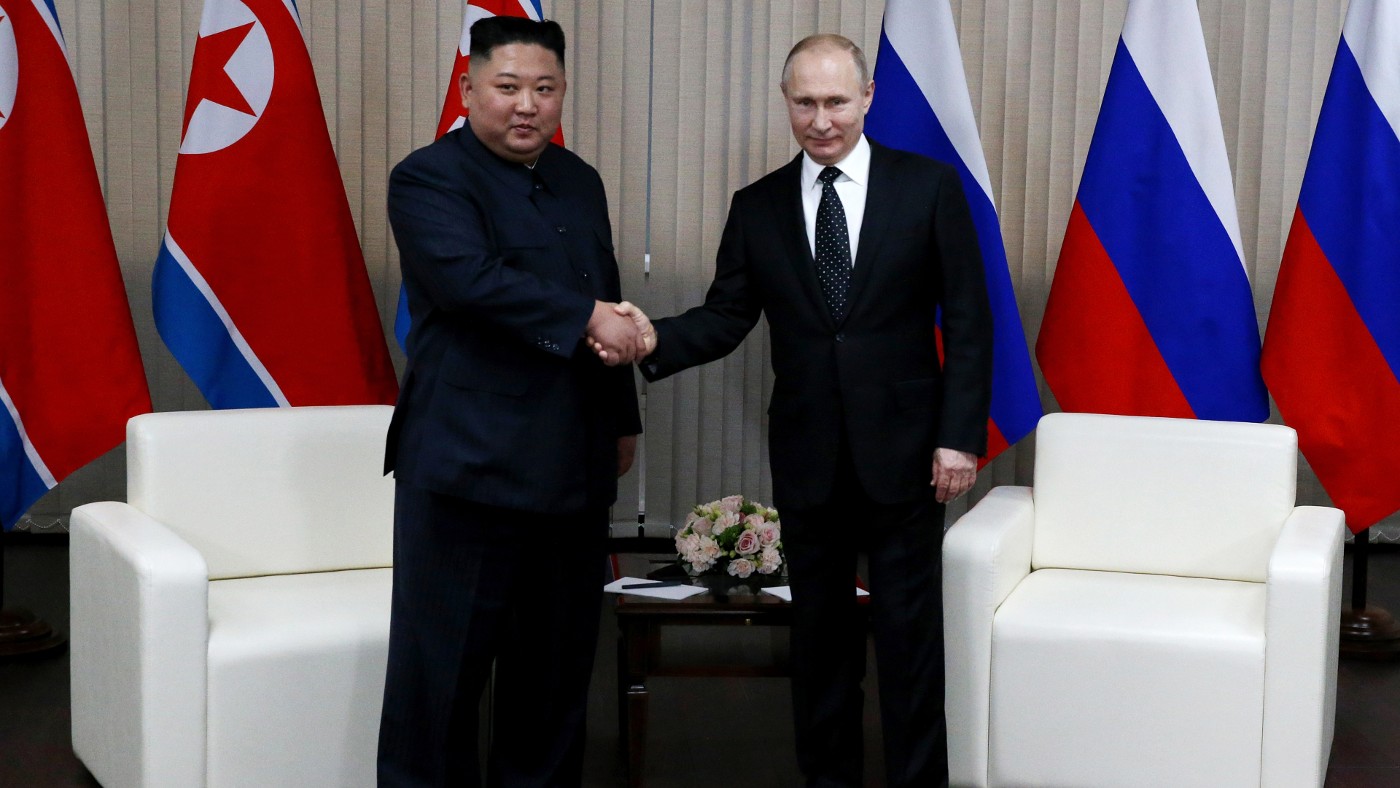 Would North Korean weapons tilt the war Russia’s way?
Would North Korean weapons tilt the war Russia’s way?Today's Big Question Putin wants to boost ‘depleted stocks’ but Pyongyang’s arms may be in poor condition
-
 Nobody seems surprised Wagner's Prigozhin died under suspicious circumstances
Nobody seems surprised Wagner's Prigozhin died under suspicious circumstancesSpeed Read
-
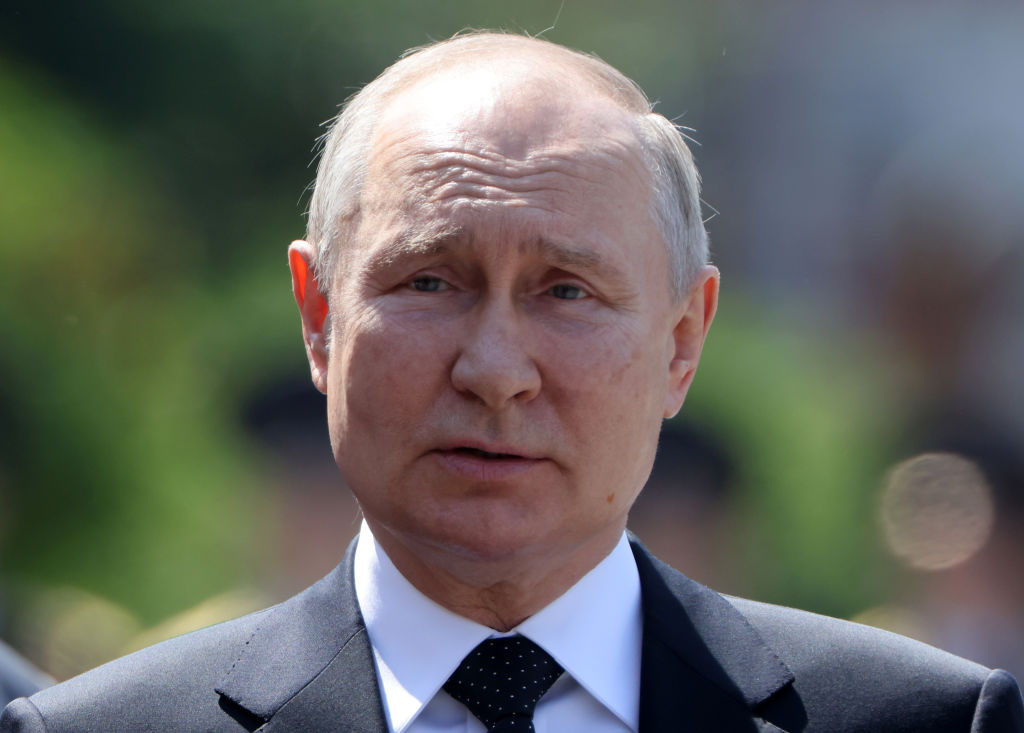 Putin's grip on power apparently damaged after Wagner mutiny
Putin's grip on power apparently damaged after Wagner mutinySpeed Read
-
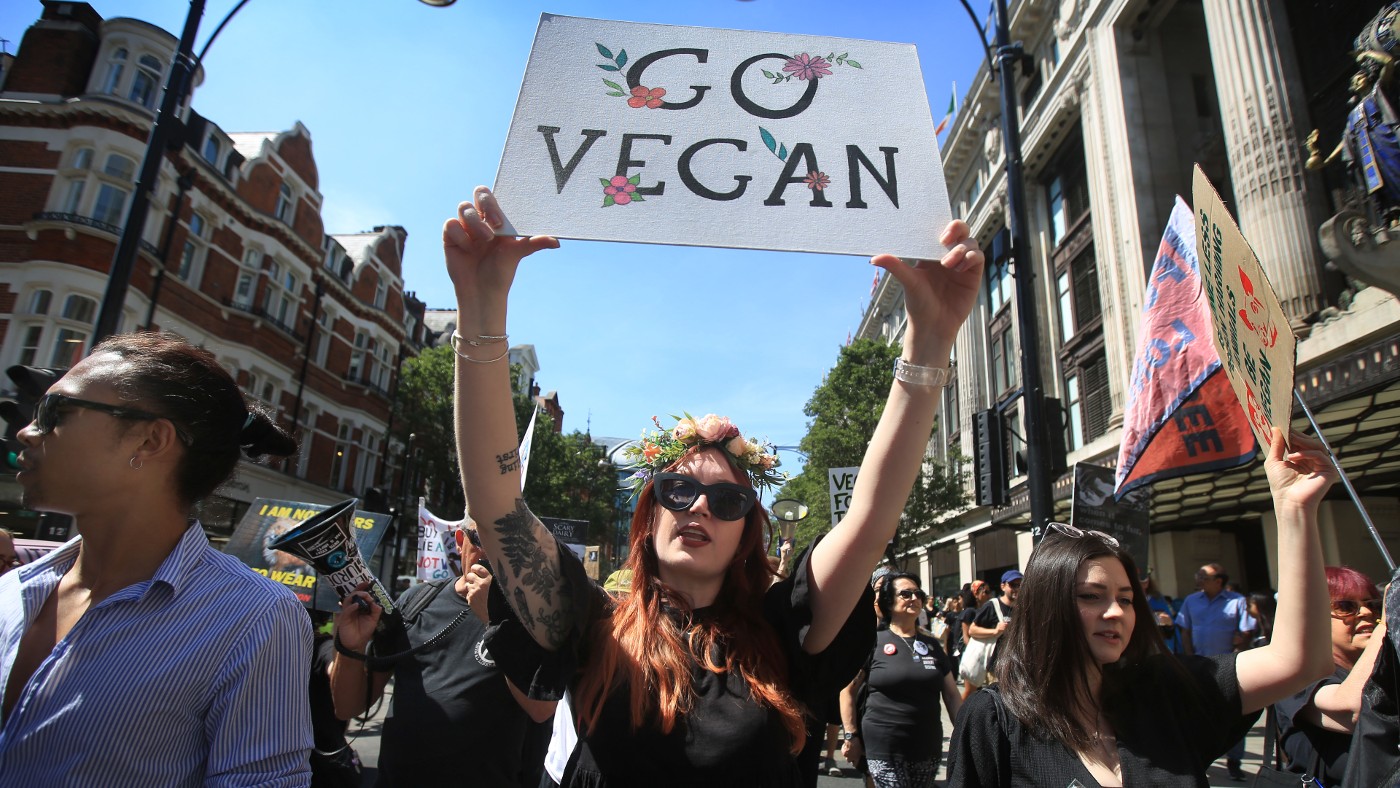 Top chef tells vegans to ‘f*** off’
Top chef tells vegans to ‘f*** off’feature And other stories from the stranger side of life
-
 Boris Johnson shocks UK by resigning from Parliament
Boris Johnson shocks UK by resigning from ParliamentSpeed Read
-
 Bees delay flight for three hours
Bees delay flight for three hoursfeature And other stories from the stranger side of life
-
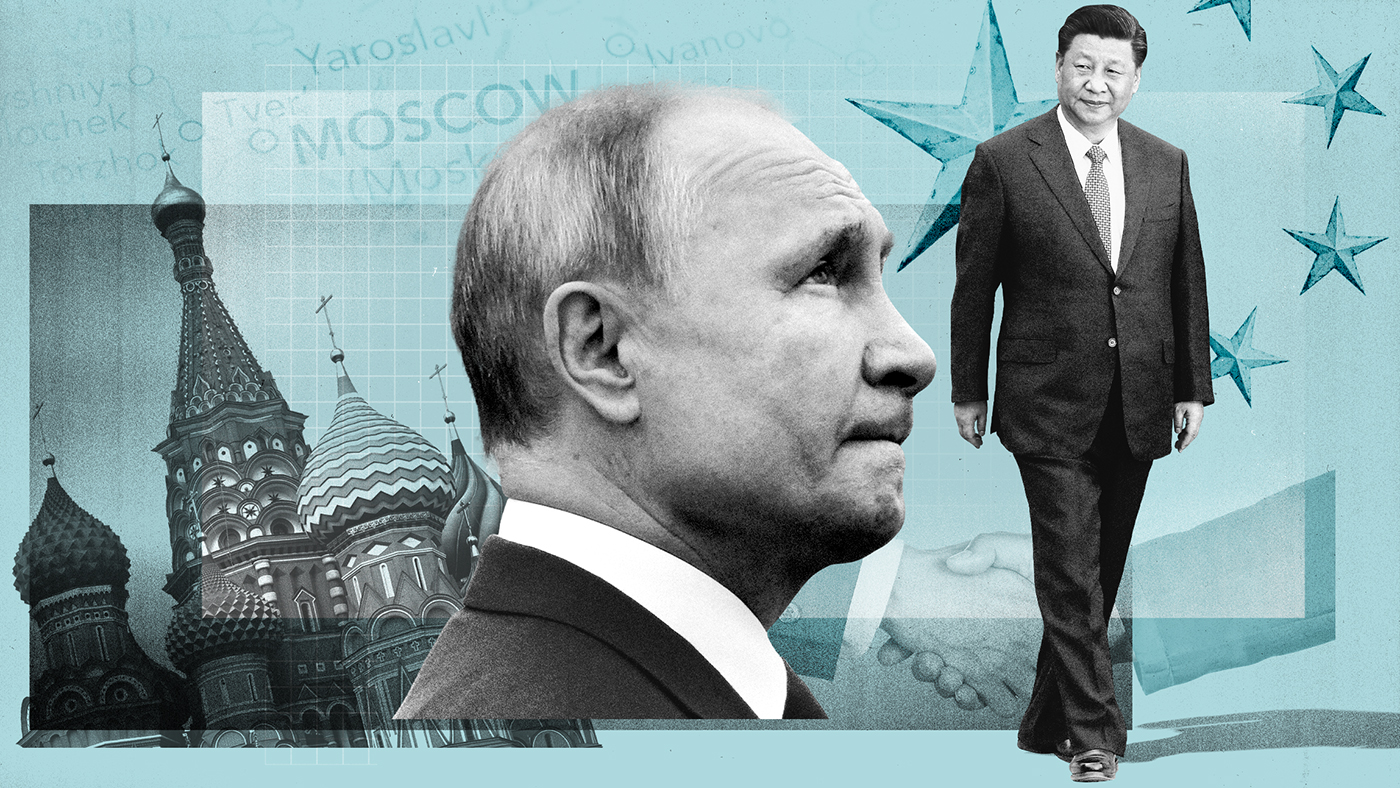 Is Russia a Chinese 'client state'?
Is Russia a Chinese 'client state'?Today's Big Question Reading between the lines of Xi and Putin's Moscow summit
-
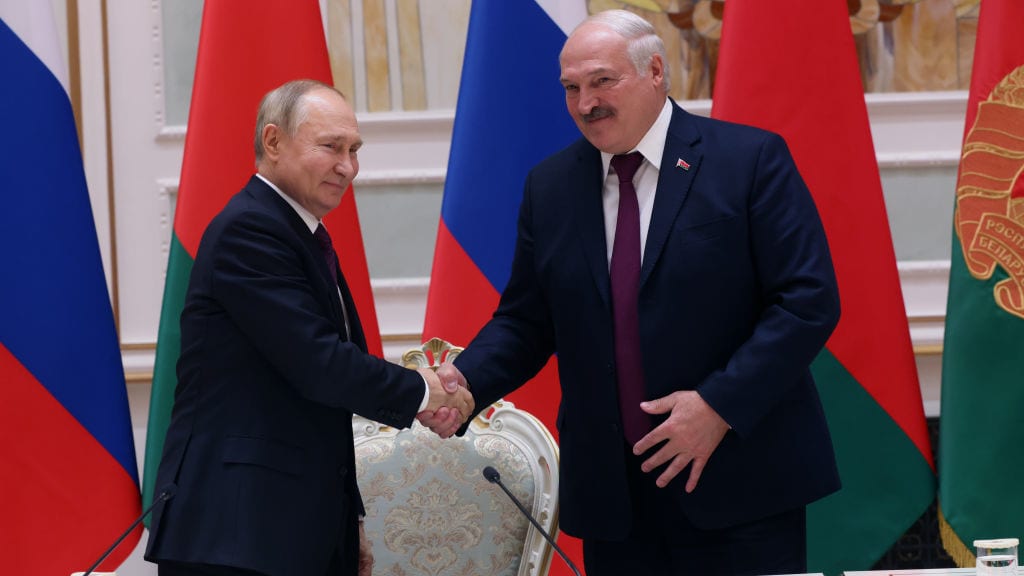 Putin, Lukashenko meet as Ukraine fears Moscow could launch offensive from Belarus
Putin, Lukashenko meet as Ukraine fears Moscow could launch offensive from BelarusSpeed Read